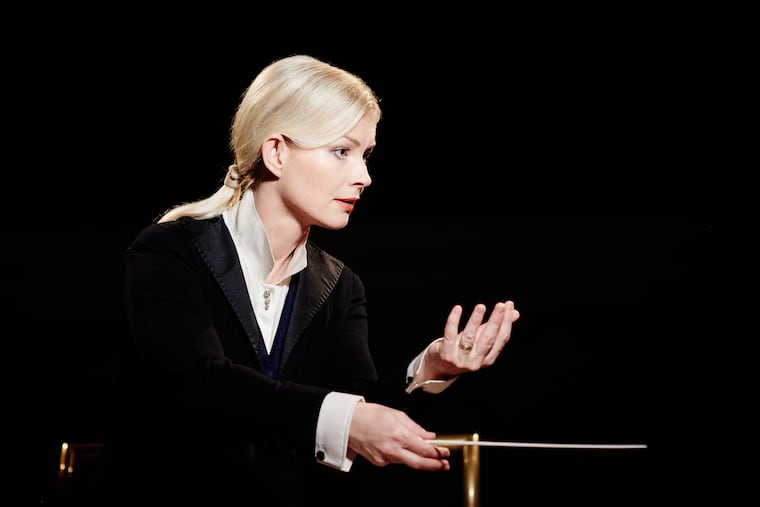After outcry, Philadelphia Orchestra adds female composers to its 2018-19 roster
Two new works by living composers have been added to the season.

The Philadelphia Orchestra is getting its female-composer groove back.
Partially in response to national criticism for assembling a 2018-19 season without a single work by a female composer, the orchestra Wednesday issued a revised season schedule augmented by two works by female composers. A few more female guest artists of various types have also shown up on the season roster.
In November, the orchestra will give the U.S. premiere of Perspectives by Canadian composer Stacey Brown, and then in June perform the overture-like Masquerade by London-born Anna Clyne, which was premiered in 2013 at the BBC Proms.
Critics piled on when the orchestra announced its 119th season in January with not a single work by a female composer. The lineup struck many as particularly tone-deaf coming at a time when institutions are reassessing contributions from, and slights to, women in all sectors.
New Yorker music critic Alex Ross tweeted: Number of female composers programmed by the Chicago Symphony and the Philadelphia Orchestra for the 2018-19 season: 0
It seemed uncharacteristic of an ensemble with a historic track record of opportunity for women, and the orchestra called it an "oversight."
>> READ MORE: The Philadelphia Orchestra schedule for 2018-19 scores a zero in female composers
Even before social media and the music press called out the orchestra, both Clyne and Brown were already being discussed as composers the orchestra wanted to perform in future seasons, said artistic planning vice president Jeremy Rothman. But once the deficit of women drew criticism, they were inked in for the 2018-19 season.
"We wanted to recognize what was pointed out as a shortcoming in our programming, but we didn't just reach into our grab bag and pull out pieces, absolutely not," he said. "These were pieces that Yannick knew or played and were already part of the conversation about when to schedule."
Music director Yannick Nézet-Séguin led the premiere of Brown's Perspectives in Montreal in 2017 after it was commissioned by his Orchestre Métropolitain. No other works were dropped to accommodate the pieces by Clyne and Brown.
The orchestra has a decent history with female composers, conductors, and soloists. It maintains a long-standing relationship with the Philadelphia-based composer Jennifer Higdon and has performed the works of dozens of female composers both on the main stage and in chamber music concerts. It hosted female guest conductors early on in the 20th century.
The ensemble itself is about one-third female, and has several female principal players, including a hornist and tubist.
Wednesday's further details for the season also noted a number of other female performers previously unannounced, though Rothman said their appearances were already scheduled before criticism of the season mounted.
Storyteller Charlotte Blake Alston will appear as usual in the orchestra's Sound All Around concerts for children, and, to help recognize her 25-year relationship with the orchestra, will make her subscription-concert debut in January as the narrator in Bernstein's Symphony No. 3, "Kaddish."
Also previously unannounced by the orchestra is an appearance by the Estonian conductor Anu Tali, who will lead musicians from the orchestra and Tempesta di Mare next month in a work for FringeArts called Songs of Wars I Have Seen with a score by Heiner Goebbels and text by Gertrude Stein.
Another project well underway before this season was announced is with composer Gabriela Lena Frank, already known for having written a piece for Nézet-Séguin's inaugural season as music director. She will be writing a major new commission tentatively expected for the 2020-21 season, and will be in Philadelphia for residency work during its creation.
Rothman says that even with the addition of two female composers to next season's roster, "we acknowledge there is still a great imbalance. Including two composers on the season doesn't address what is a much larger conversation. At the same time it's certainly more productive than ignoring the conversation, so we wanted to address that through some revisions.
"When it's pointed out, we are right to be responsive."